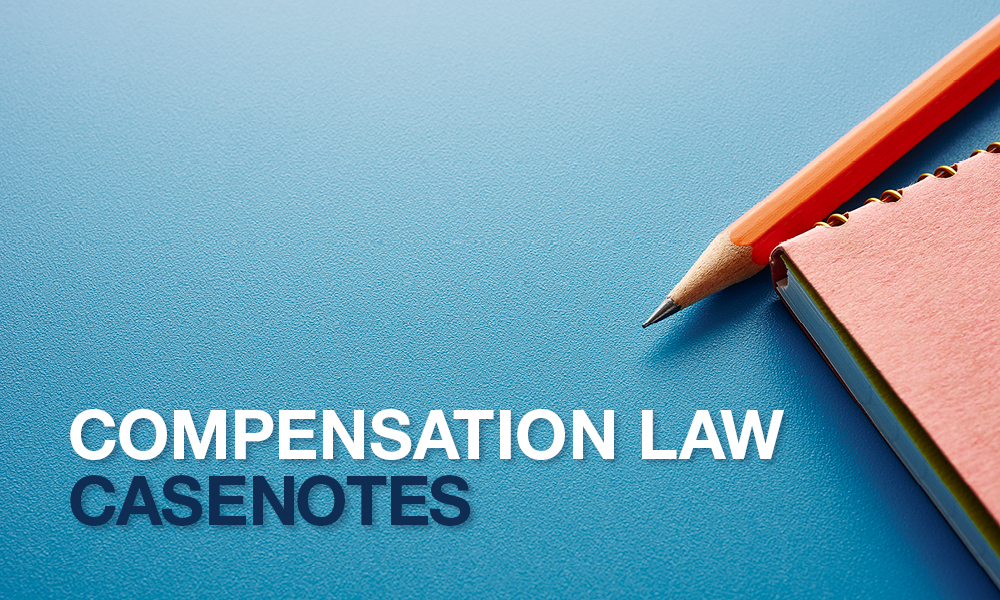…master of vessel negligent – owner of vessel vicariously liable for master’s negligence – rejection of defences claiming volenti non fit injuria
On 25 January 2020, a marine accident occurred during a leisure outing with a group of 10 people on the water at Sussex Inlet, New South Wales.
The accident occurred when the intoxicated plaintiff, Adam Liccardy, dived into the water from the vessel to retrieve a hat blown into the water by the prevailing strong wind. Whilst reboarding the vessel using a fixed ladder at the stern, his left lower leg and knee became injured when he came into contact with the submerged propeller of the vessel’s outboard motor.
The vessel was owned and operated by the first defendant, Daniel Payne, a sole trader trading under the business name Sussex Inlet Pontoons Pty Ltd. At the time of the accident – and at the behest of the first defendant – the vessel was under the control of the second defendant, Derek Allred, as master.
The first defendant charged a total fee of $750 for the charter of the vessel for the day, which included the provision of a suitably-skilled master for the vessel. The arrangement involved the second defendant collecting the balance of the agreed hiring fee, and passing the whole amount on to the first defendant.
There was a factual dispute as to whether the relevant relationship of employment or agency, and vicarious liability, existed between the first and second defendants. There were also disputes as to what liability consequences applied to the plaintiff.
In addition to framing his case against the defendants in negligence, as against the first defendant, the plaintiff also relied upon statutory warranties claimed to arise pursuant to the consumer protection provisions of ss60 and 67 of the Australian Consumer Law (ACL).
Decision
Verdict and judgment for the plaintiff in the amount of $464,773.25 – the defendants are to pay the plaintiff’s costs on the ordinary basis, unless a party can establish the basis for some other costs order.
Ratio
Employment
There was no contractual consideration for that agreement flowing between Mr Payne and Mr Allred, where Mr Allred was not being paid for his services. The court found that Mr Allred had previously been paid cash for his efforts from time to time, in the course of business activity.
The court did not accept that Mr Allred was on a work trial. Mr Allred had been sent out of the charter unsupervised because, from Mr Payne’s observations, he was capable of the task, and it provided financial benefit to Mr Payne’s business.
The court found that Mr Allred was an employee of the business and not an independent contractor, which then raised the spectre of agency.
Agency and vicarious liability
The vessel used (that belonged to Mr Payne) was expensive; Mr Payne charged and received financial benefit for both the vessel and its master, notwithstanding Mr Allred received no financial benefit.
When the charter was originally booked, it was to be run by Mr Payne. Due to unexpected family commitments, Mr Payne was asked to master the vessel in his stead, which suggests a relationship of agency.
The court conceded that there was a relationship of employment and agency between Mr Payne and Mr Allred. Mr Allred had the necessary qualifications to operate the charter, Mr Payne asked him to fulfil an obligation he couldn’t, and it was of no consequence that Mr Allred was not paid for his efforts.
The court was satisfied that the evidence justifies there was a sufficient business connection to establish a relationship of agency and vicarious liability, and Mr Payne is to be held liable for Mr Allred’s acts.
The negligence of Mr Allred was also established.
Contributory negligence
The defendants pleaded a number of particulars for contributory negligence, and relied upon the maxim ‘volenti non fit injuria’ as an allegation of contributory negligence. The court found that the plaintiff did not dive towards the propeller or hazard zone, and he was entitled to assume that Mr Allred was taking care of his safety. He was unaware the vessel was in reverse when he was proceeded to reboard it.
As to the plaintiff’s level of intoxication, the court found that if the plaintiff was injured when diving into the water or by a near-drowning event, contributory negligence would be considered. But, as the source of his injury was different and caused by the actions of Mr Allred, the defence did not establish a relevant causal nexus between any alleged contributory negligence of the plaintiff, and the injuries he suffered.
The court made no assessment of contributory negligence.
Obvious risks, dangerous recreational activity and intoxication
The defendants pleaded the defence of an obvious risk, and that the plaintiff was engaged in a dangerous recreational activity. The court contended that the defence was not available, as the plaintiff did not intend to place himself near the propeller when he dived into the water – for as long as he kept himself clear of the vessel, he did not invite any obvious risk of harm, and it was the second defendant who activated the propeller where the plaintiff was in the water. Therefore, the circumstances did not constitute a foreseeable risk to a reasonable person.
As to the dangerous recreational activity defence, the court concluded that the act of diving into the water to retrieve a hat is not characterised as a dangerous recreational activity.
Mr Payne claimed that the plaintiff was intoxicated at the time and submitted that fact should operate as a defence. However, the court concluded that it was not the plaintiff’s intoxication that led to his injury; it was the action by the second defendant which would have occurred, regardless of whether the plaintiff was intoxicated. The defence was rejected.
Application of ACL
The plaintiff claimed that Mr Payne was providing a service, and that he was a consumer in accordance with the statutory warranties provided by the ACL. The defendant denied that he agreed to provide the plaintiff with services within the meaning of the ACL, and denied the plaintiff was a relevant consumer. The court rejected the plaintiff’s claim, as the agreement to provide services was between Mr Payne and Mr Tooth (another member of the group), not specifically with the plaintiff.
This compensation law casenote appears courtesy of Travis Schultz & Partners (TSP), where the author, Libby Thomas, is a lawyer. As part of the firm’s commitment to providing ongoing legal education, TSP practitioners review relevant judgments and prepare case summaries for the legal profession. A free searchable catalogue of compensation law casenotes is available at schultzlaw.com.au/case-summaries (registration required). The full version of the judgments can be found at austlii.edu.au.














Share this article